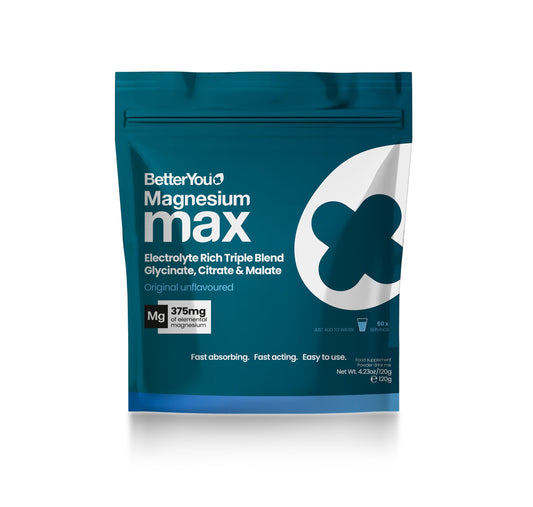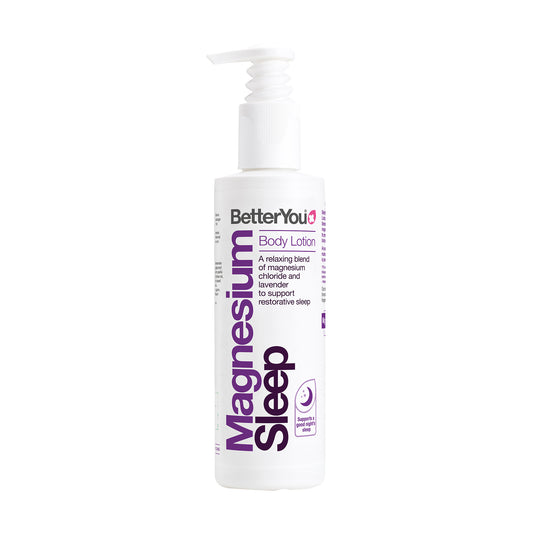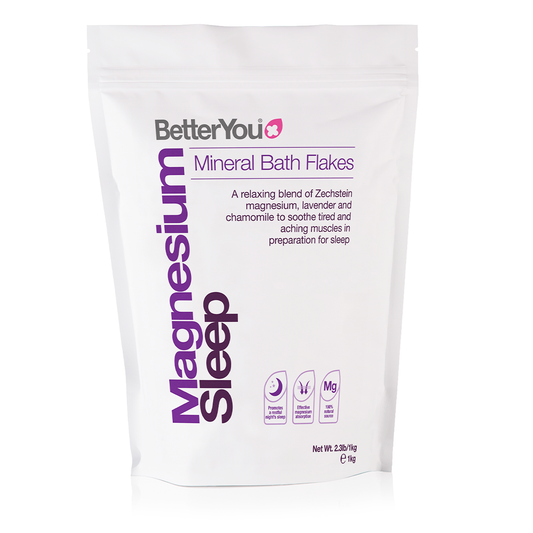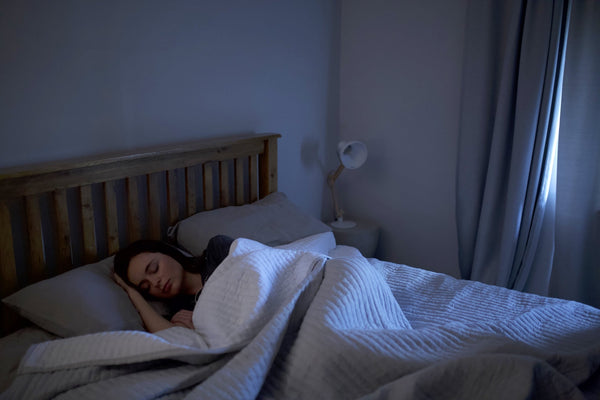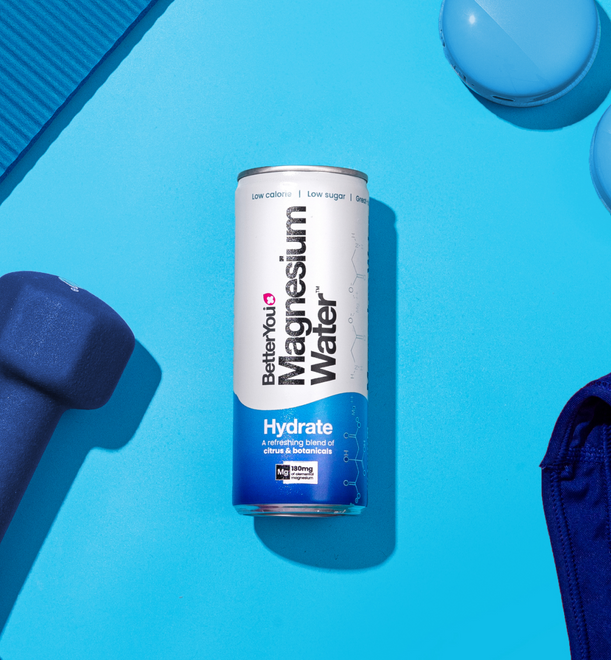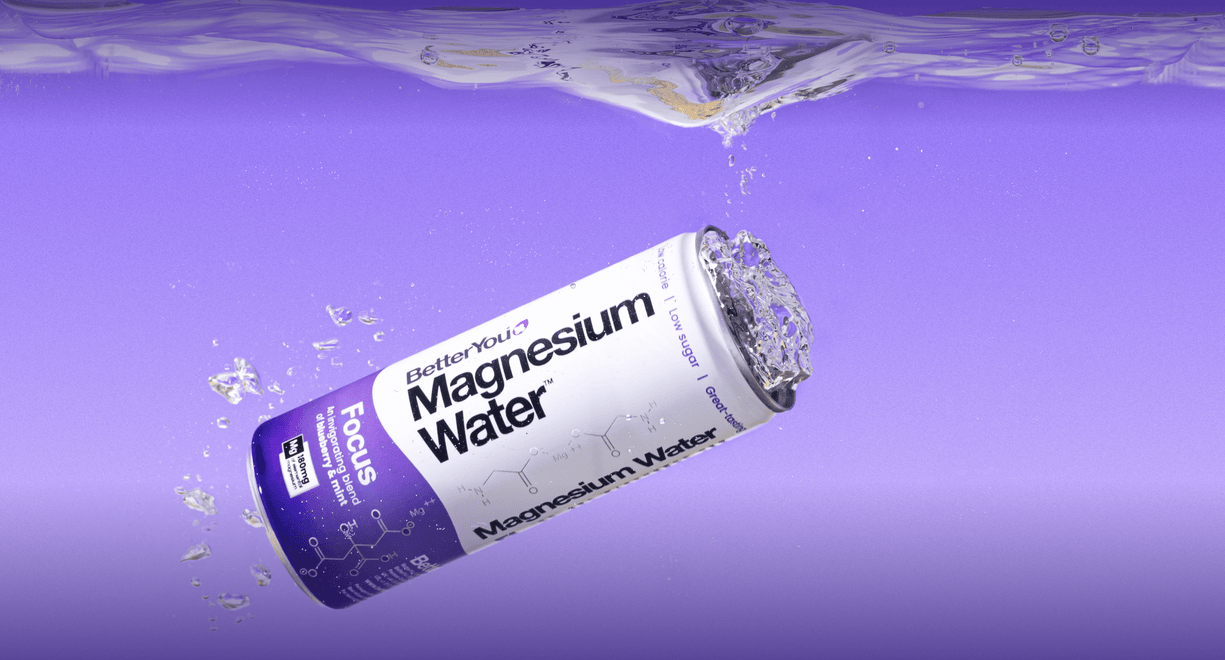We’re all far too familiar with sleep deprivation. There are few feelings more frustrating than tossing and turning at night, unable to sleep, and then waking up feeling unrested. Discover how to combat sleep deprivation with the nutrients which help you get a peaceful night’s sleep.
Table of Contents:
- What is Sleep Deprivation?
- 12 Symptoms of Sleep Deprivation
- Are You at Risk of Sleep Deprivation?
- Magnesium’s Role in Sleep
- 5 Ways to Remedy Sleep Deprivation
What is Sleep Deprivation?
Sleep deprivation is defined by the condition of suffering from a lack of sleep. No matter how early you get to bed, you may be unable to sleep right away, which leads you to be lying awake and struggling to drift off. While sleep deprivation is defined by having short hours of sleep, sleep deficiency is more about how poor your sleep is in general.
Sleep deprivation can have long term side effects which can be detrimental to your health and wellbeing. You have an internal body clock and sleep cycles, and keeping these in proper order is essential to getting a good night’s rest. Many minerals affect your ability to sleep well and help regulate these natural cycles, so ensuring you have a balanced nutrient intake is vital to a healthy sleep routine. Without these elements of sleep, you may be more likely to suffer the side effect of sleep deprivation or sleep deficiency.
Magnesium is one of these minerals, and it does this by regulating the melatonin your body produces. Melatonin is a hormone which tells your body to wind down for bed and to wake up in the morning. Without proper melatonin function, you may experience sleep deprivation, and experience unwanted symptoms from a lack of rest. Sleep is a basic human need that can have vital effects on your mental and physical health. Sleep supplements can help to encourage a full night’s rest for those who struggle to sleep.
12 Symptoms of Sleep Deprivation
Sleep deprivation can affect anyone who struggles to drift off at night. Knowing how to avoid sleep deprivation is vital if you want to stay rested. Whether you have an important meeting coming up, or are competing in an athletic competition, getting a good night’s sleep is important. Some of the symptoms of sleep deprivation to look out for include:
- Feeling tired during the day
- Frequent yawning
- Not feeling refreshed and alert when you wake up
- Difficulty concentrating
- Feeling like you could doze off while sitting during the day
- Memory issues
- Mood changes
- Accidents and increased clumsiness
- Increased risk of diabetes
- Weight gain
- High blood pressure & increased risk of heart disease
- Poor balance
Contact your GP or other health professional if you think you may be suffering with these signs of sleep deprivation and before taking supplements. Improve your sleep cycle with the knowledge of these signs of sleep deprivation and by ensuring you take preventative measures to help you snooze better each night.
Are You at Risk of Sleep Deprivation?
Although anyone can be at risk of sleep deprivation, there are some people who may be more likely to suffer from the unwanted symptoms. You may be more at risk of sleep deprivation if you:
- Have limited time available for sleep, such as working long hours with early mornings
- Have schedules that conflict with your internal body clock, such as night shifts, caregivers, shift workers
- Make choices that prevent you from getting enough sleep, such as going to bed late, and not leaving enough time for sleep, eating certain foods before sleep
- Have undiagnosed or untreated medical problems, such as stress, anxiety, or sleep disorders
- Have medical conditions or take medicines that interfere with sleep
If you are at increased risk of sleep deprivation, or sleep deficiency, you may need to talk to a medical professional about how best to combat these issues. Sleep has an affect on mental health, and so it is important to tackle the issues that come with sleep deprivation.
Magnesium’s Role in Sleep
Ensuring you have a well-rounded diet with optimum nutrient intake is essential to help you drift off more easily. Nutrients which affect sleep include magnesium. Having low levels of magnesium can contribute to a bad sleep pattern and increase your risk of sleep deprivation, so transdermal magnesium may help you.
Low magnesium levels could be a cause of sleep deprivation. Magnesium is a mineral which can help you sleep. This is thanks to the fact that magnesium benefits sleep due to its role in melatonin production. If you’re struggling to get a peaceful night’s rest, it may be that you need magnesium supplements or sleep aids to help you drift off.
Low magnesium levels, or magnesium deficiency, can affect anyone who does not have an optimum intake of the mineral. The most common cause of magnesium deficiency is not getting enough of the mineral in your diet. Consuming a lot of processed fats, refined sugars, salt, synthetic sweeteners or caffeine, like energy drinks, reduces your body’s ability to absorb magnesium.
You can also develop low magnesium levels if the calcium in your blood is too high. Although calcium and magnesium work together, having high levels of calcium can limit how much magnesium your body can absorb. Keeping your magnesium levels at their optimum by choosing the best supplements is one way to help reduce the symptoms of sleep deficiency and remedy sleep deprivation.
5 Ways to Remedy Sleep Deprivation
Remedying sleep deprivation takes more than just one quick solution, but improving your sleep could be easier than ever with our range of supplements. Including these magnesium products in your sleep routine can help you drift off that bit sooner. BetterYou’s convenient, pill-free supplements include:
- Magnesium sprays - The mineral oil used in our Magnesium Sprays is a concentration of magnesium chloride. Magnesium sprays are a quick and effective way to help you sleep better thanks to magnesium. Designed to be taken on the move, they are an easy pill-free solution to supplementation and sleep aids.
- Magnesium lotions - BetterYou magnesium lotions are easy to use and can encourage optimal levels of vital sleep aid minerals. Use them before or after exercise to support bone and muscle health, to aid sleep and quieten the mind, and to moisturise and hydrate for healthy looking skin.
- Magnesium flakes - Magnesium Bath Flakes are a highly concentrated form of magnesium chloride, a natural form of the mineral. They are an effective way to enjoy the benefits of magnesium chloride in a bath, fully exposing the body to this essential mineral. When placed in warm water, the flakes dissolve and absorb into the skin, the perfect way to relax and wind down before sleep.
- Magnesium gel - BetterYou Magnesium Gel uses a targeted application technique to supplementation which avoids the need to take tablets, ideal for use during exercise to aid muscle function, recovery, and remedy sleep deprivation.
- Magnesium body butter - Our BetterYou Magnesium Body Butter is a deeply rich, intensively moisturising body butter, to help you feel rested and relaxed, remedying sleep deprivation, while promoting muscle function.
Include these magnesium products in your bedtime routine to help your body wind down before sleep, thanks to the relationship between magnesium and melatonin. By maintaining optimum magnesium levels, your body will know it’s time to switch off ready to sleep and you can help encourage a peaceful night’s rest.
Supplementing with BetterYou
We specialise in creating hassle-free methods of supplementation to encourage a balanced nutrient intake. From vitamin D supplements for healthy bones, and vitamin B supplements for immune support, begin your pill-free nutritional journey with BetterYou.
